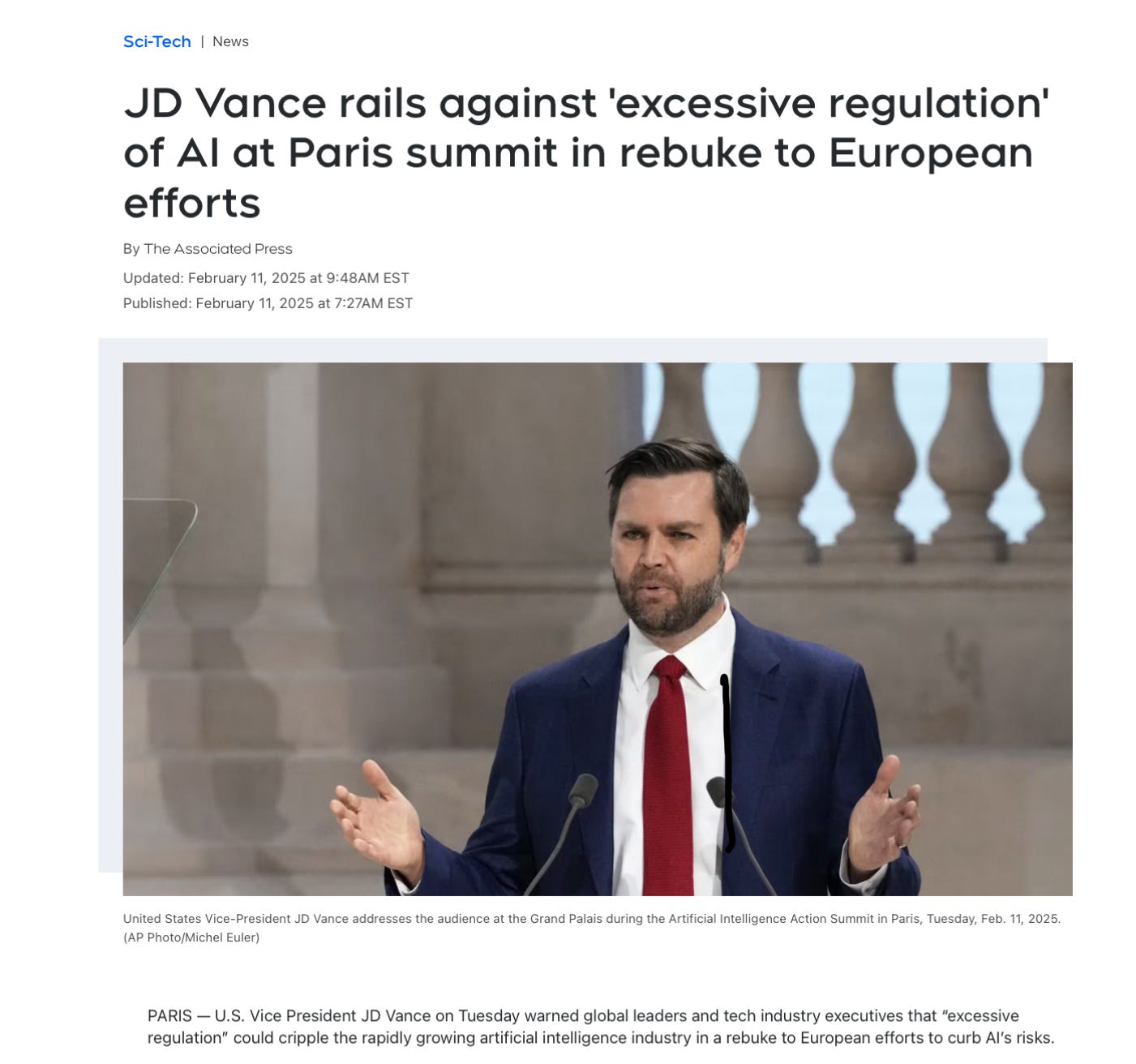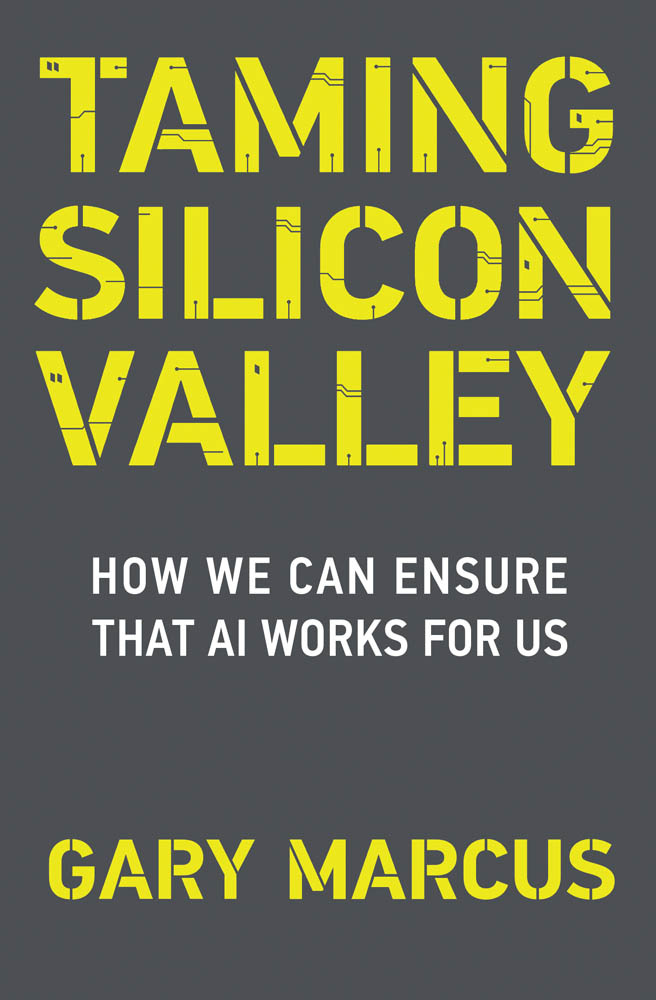Everything I warned about in Taming Silicon Valley is rapidly becoming our reality
It brings me no joy to say that
In remarks earlier today at the Paris AI summit, JD Vance pretty much confirmed all that I warned about last year.
The premise of Taming Silicon Valley was that
Tech oligarchs were taking over the world.
They were overhyping LLMS as AGI, even as problems like hallucinations and boneheaded persisted.
Governments were buying too much of that, and too in bed with the companies, and would follow their lead too closely.
We would wind up with little or no regulation around AI, despite massive risks around cybercrime, misinformation, bias, overreliance (e.g., in military contexts) of inadequate systems, etc..
Our only hope as citizens would be to protest or even boycott generative AI.
Vance came out swinging today, implying — exactly as the big companies might have hoped he might – that any regulation around AI was “excessive regulation” that would throttle innovation.
In reality, the phrase “excessive regulation” is sophistry. Of course in any domain there can be “excessive regulation”, by definition. What Vance doesn’t have is any evidence whatsoever that the US has excessive regulation around AI; arguably, in fact, it has almost none at all. His warning about a bogeyman is a tip-off, however, for how all this is going to go. The new administration will do everything in its power to protect businesses, and nothing to protect individuals.
As if all this wasn’t clear enough, the administration apparently told the AI Summit that they would not sign anything that mentioned environmental costs or “existential risks” of AI that could potentially going rogue.
If AI has significant negative externalities upon the world, we the citizens are screwed.
§
As a side note, Vance took a veiled job at China, warning of authoritarian use of AI. He’s absolutely right, we should worry about authoritarian uses of AI.
But where exactly does he think that moves like letting a private, AI-focused citizen virtually unlimited access to US Treasury records, including some around personal finances, going to lead, in the US? (Also, having our own massive LLMs will do nothing to stop China from using theirs in authoritarian pursuits.)
§
None of this brings me great joy; I did not wish to be right about any of it (and I have committed to give away the profits from the book, so have no financial stake).
But this is where we are.
The subtitle of the book was “How we can ensure that AI works for us.” Right now, it isn’t. Unless we speak up very, very loudly, it won’t.
Gary Marcus thinks that AI could, in principle, and in the right hands, bring utopia. But the path we are actually going down is laden with dystopian danger.



Who would have thought that randomly correct answers would have become a competitive multi-billion dollar industry.
"If AI has significant negative externalities upon the world, we the citizens are screwed." Not only screwed, but stuck with the bill, that is should any of us still remain.